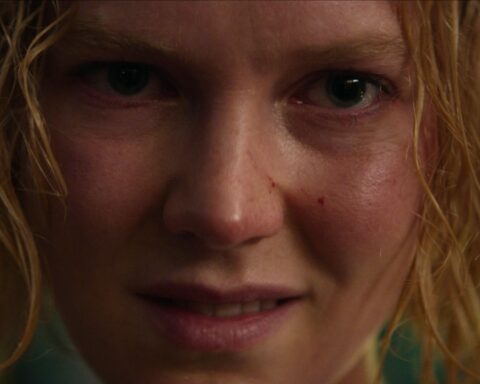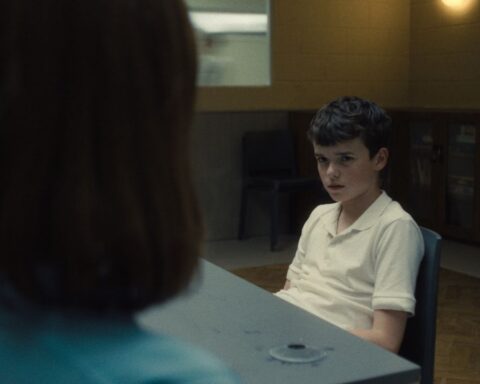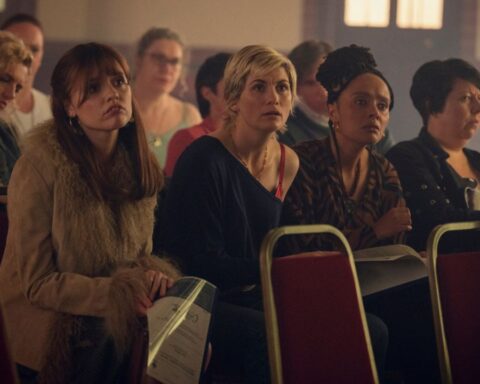I was never one for Downton Abbey. I don’t know what it was but it just didn’t work for me. But throw in football, and suddenly it sounds like something right up my alley. That is exactly what The English Game is.
The English Game is a new Netflix miniseries by Julian Fellowes, the creator of Downton Abbey and an actual member of the English House of Lords. And like Downton Abbey, The English Game is a period piece set at the turn of the century, but instead of a series about class structures in an English household in the North of England, it’s a series about class structures in football in the North of England.
It tells the true story of the struggle of the English working class trying to make a place in the growing sport of football, while the upper class try and keep the sport for themselves. Yes, this is a soapy-guilty pleasure watch that’s hidden in a story about early football and how it tries to grow from being a sport for the wealthy to one for the people at large.

This is the story of Fergus Suter, a Scottish footballer who makes the illegal move down south to play for Darwen, a small cotton mill town in Lancashire, England. This move was illegal because in 1879, football was played as an amateur sport, meaning players were not paid, and moving clubs was just not something you do.
And then, the show does something very good shows do. It introduces a villain early on, and over the course of the series, inches that villain, slowly but surely, over to the good side. It is the reverse of what Emperor Palpatine tried with Luke Skywalker. Arthur Kinnaird is that villain.
Or at least he was the villain. As the captain and star player of the reigning FA Cup champions Old Etonians (even that name is enough to make you hate them), he and his, well, old Etonians, stood for the kind of football that they had always wanted it to be. An amateur, gentleman’s game. Played by gentlemen. Like them. And the Old Carthusians Football Club. And the Old Harrovians. All amateur clubs representing English upper crust public schools. Which is funny, seeing as how the way they play the game is anything but gentlemanly.

But the football is just the way in for Julian Fellowes to show the difficult life of the working class Englishman at the time. Unwed mothers forced to give up their newborns and mill workers forced to take pay cuts. All done by the upper class down in London, all the while looking down on the northerners as hicks and yobs.
The release of The English Game – though not intentional – may go some way to providing a salve for the weird moment we are currently in. With the COVID-19 outbreak, football, and all sport really, has effectively halted. There are rumblings about how the current season will end. There are gripes about the big international tournament being delayed a whole year and what that will do to that following year’s football calendar. There are real life and death issues about the sustainability of the smaller football clubs who live on the week-to-week cash injection of playing the sport.
And then there are those that say that football is only sports. It’s only entertainment. That this moment in our history is about life and death. That doctors and nurses are fighting for every inch, and everyday people are fighting to stay alive, not just because of the disease, but also figuratively with their jobs and pay checks on the line. What is football in the face of all this?

More so a series about class structure in football and how it was unfair in the late 1800s. It might seem as trivial as football currently is (possibly even more so) in this trying time. But there is a message here. A simple and straightforward one at that. Of how the working class really got the shit end of the stick of life and how the upper class should do better with their God given luck.
But there’s more. What this series shows is how football brought hope. That after the sixth day of a 12 hour a day working week, for 90 minutes, a town is brought together to watch 22 men kick around a ball. And how that made them forget that six day, 12 hour a day, work week. It shows how the game brought people joy and a sense of belonging. Look past the hooligans that would come almost a 100 years later. This is what football is about.
As the great Italian football manager Arrigo Sachi once said, football
“is the most important of the unimportant things in life”. And The English Game is a gentle reminder for us to embrace those unimportant things. Especially right now.
The English Game
Netflix, Season 1, 6 episodes
Showrunners: Julian Fellowes and Rhonda Smith
Directors: Birgitte Stærmose and Tim Fywell
Writers: Julian Fellowes, Tony Charles, Oliver Cotton, Ben Vanstone, Gabbie Asher, Sam Hoare, and Geoff Bussetil
Cast: Edward Holcroft, Kevin Guthrie, Charlotte Hope, Niamh Walsh, Craig Parkinson, James Harkness, and Ben Batt









Follow Us